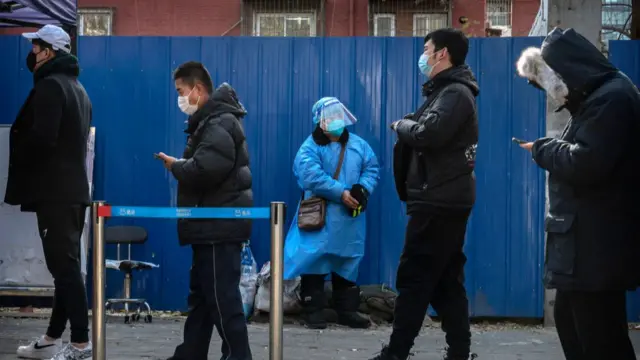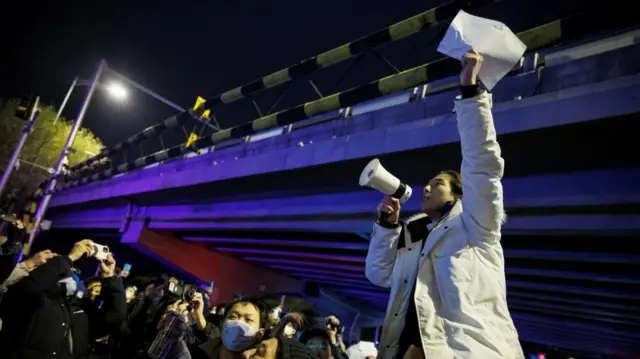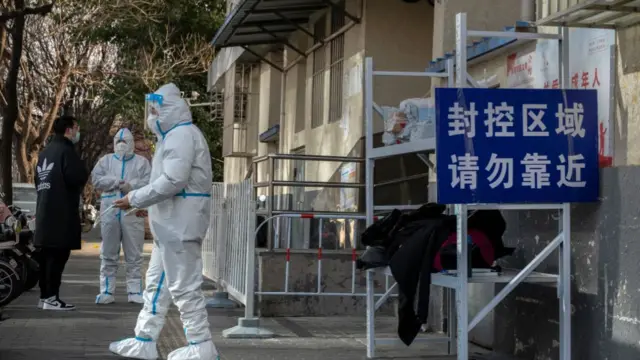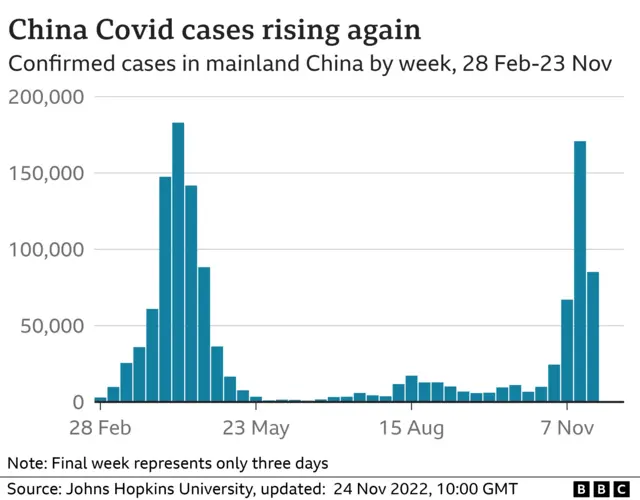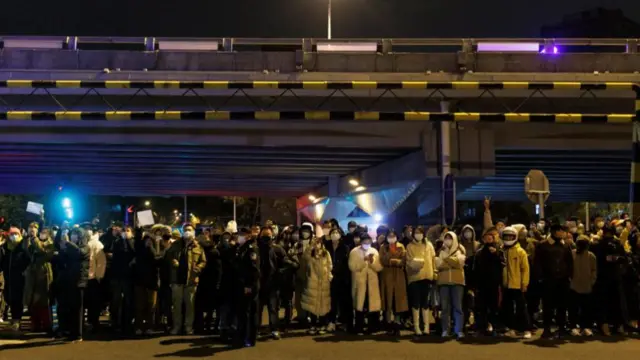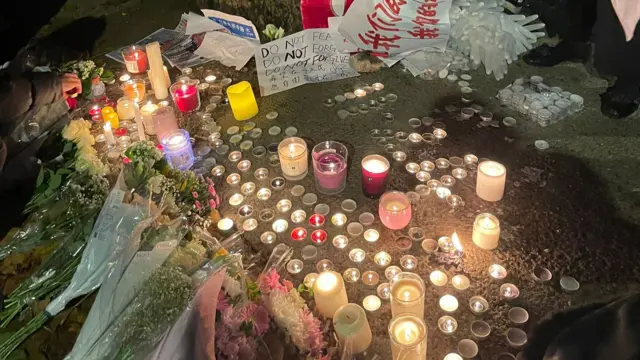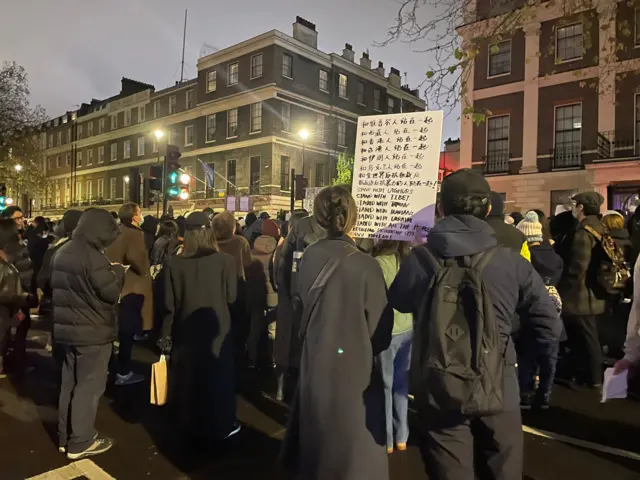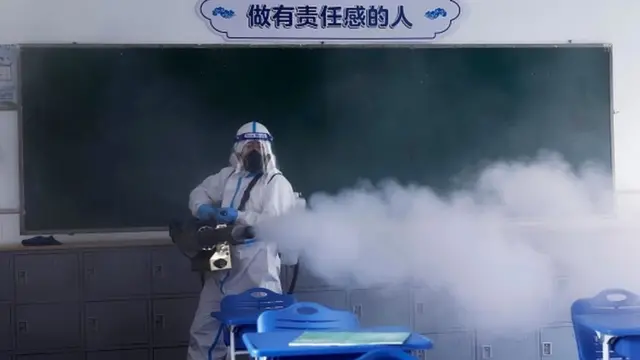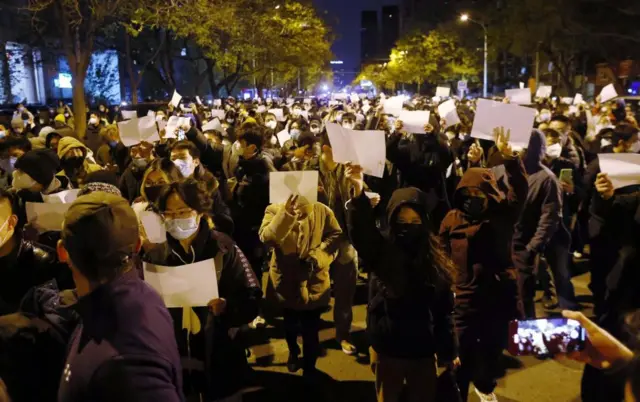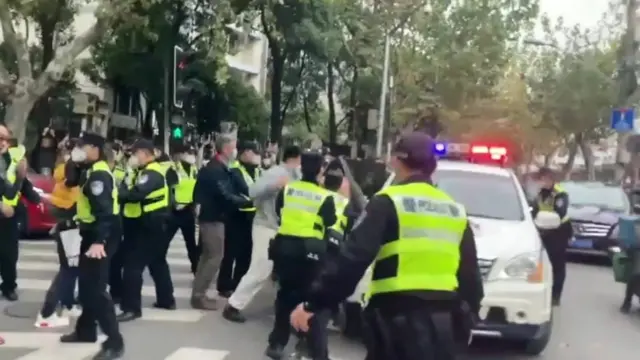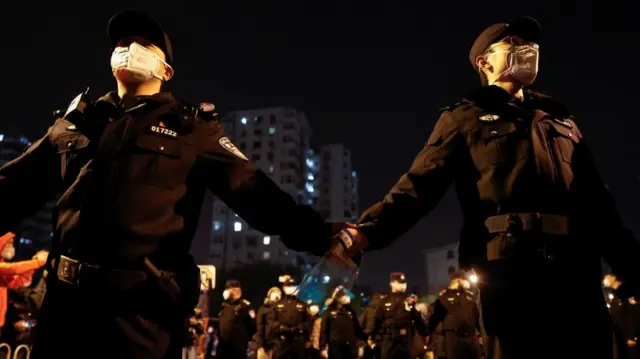In Pictures: Protests widen to China's big citiespublished at 00:51 GMT 28 November 2022
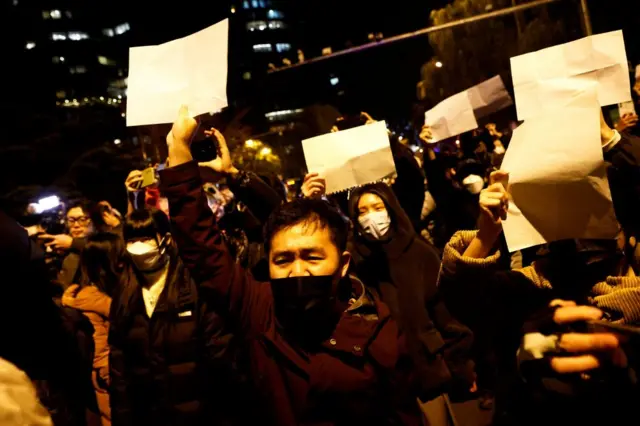 Image source, Reuters
Image source, ReutersIn Beijing, protesters held up blank sheets of paper to signal their discontent
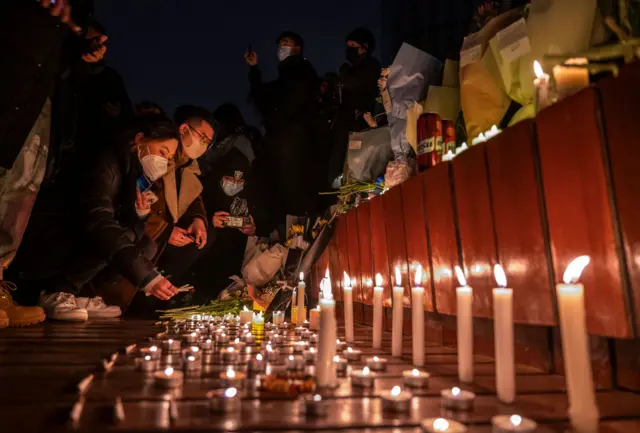 Image source, Getty Images
Image source, Getty ImagesAt a vigil, people lit candles and laid flowers for the victims of the Urumqi flats fire
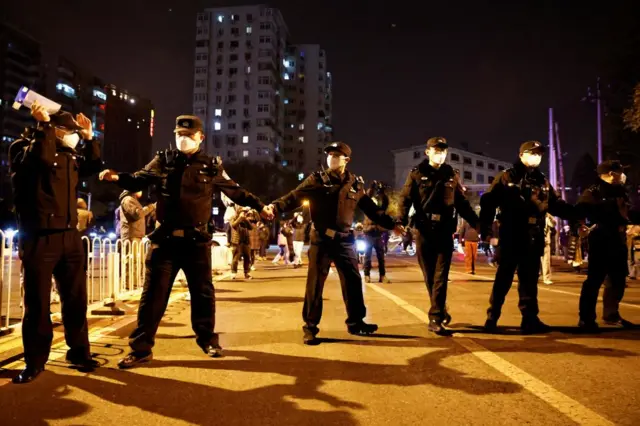 Image source, Reuters
Image source, ReutersAs the protests grew, police formed a cordon
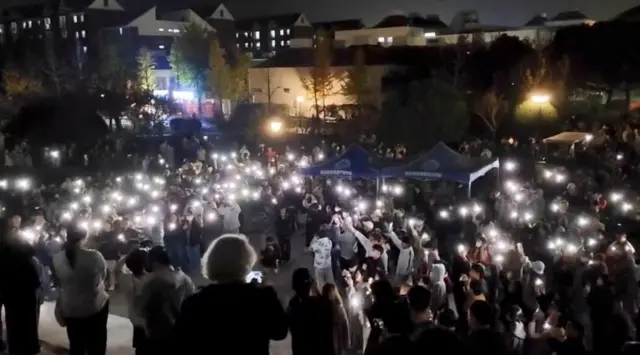 Image source, Reuters
Image source, ReutersIn Nanjing, people gathered at the Communication University of China on Saturday
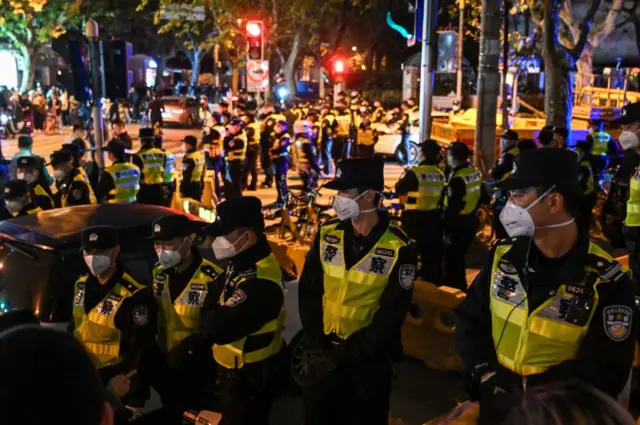 Image source, AFP
Image source, AFPWhile in Shanghai on Sunday, police officers blocked Urumqi road
